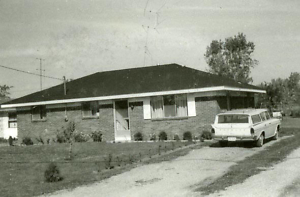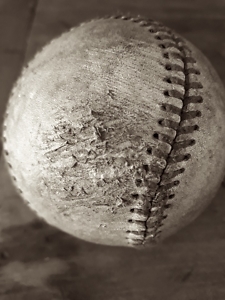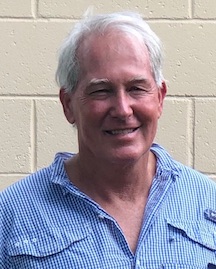Thinking of Home
I would have those days again if I could
We came there in the spring of 1963. Our house stood alone in the newly subdivided farmlands south of Nashville. Its only companions were scattered foundations representing the future homes of families whose lives we would share for years.

At first, there were no front steps. We got in by crossing on a long, bouncy wooden plank put there by the builder until the steps were finished. There were no trees or bushes, and the yard was nothing more than hard, dry dirt. Straw and seed were put down to grow a new crop of grass that would become homemade baseball and football fields, idyllic playgrounds for masses of roaming children, back in the days when we played outside for hours alone and unsupervised.
Rough gravel driveways became launching pads for squadrons of children on bikes, and we’d patrol our realm miles and miles from home — no helmets, no rules, and no shoes. We were the cell phone-less, free-range offspring of the working class, newly arrived from the country.
To a child, the house was enormous and set atop a cavernous basement where we’d take refuge with friends during thunderstorms and hard summer rains. In reality, to say it was small was generous, especially when compared to the houses of today. My parents were young then, not yet 30. Mother was a beautiful woman and my father, just out of the navy, worked hard to provide. Both liked to read. It was what you did in those days, and trips to the public library were Christmas morning come once a week. In some ways it was almost a hardscrabble life. But mostly, we were happy.

Black eyes, broken bones, and knocked-out teeth were common. Tragedy robbed us of some who would never grow old, leaving in their place great sorrow and wounds that never heal. My school, where I learned how to read, was not far away, and all the adults in our lives knew each other. The lunch ladies served our meals — giving us more than allowed if we looked hungry. (Yes, I noticed.) The P.E. teacher watched over us as a benevolent blond angel. Our teachers were demanding yet kind to us, often praising even a hint of progress, and we all secretly adored them.
Summers were endless freedom accented with homegrown tomatoes, chasing the ice cream man, and miserable bouts with poison ivy. Our baseball seasons were played in backyards, and by July we had knocked out windows, dented cars, and worn out more baseballs than I can remember. Slowly, the heat receded as summer gave way to the sound of the marching band signaling the teenage gladiators to appear. I watched the football games and dreamed dreams about someday wearing a thick, cotton blue jersey with the sewn-on white numbers and the proud blue helmet with an “A” on it representing not only my school but, also my town — the place I’d come from.
And so, these innocent years came and went while time did its work propelling us into high school, where the course of our lives would take shape. The years there were happy and hard, clear and confusing, triumph and tragedy if there ever was such a thing. We loved, laughed, hated, and cried while committing the same mistakes many times — an emotional high-wire act with falls, hurts, and harms.
It was coming and we all knew it: the day when they lined us up for the last time announcing us to the world. The end of our brief reign arrived as those kinds of days do, ready or not — or as the jumpmaster says to virgin paratroopers, “There will be no refusals.” Our many parallel courses diverged to destinations we could not have known or even dreamed of. The world waited and we could put it off no longer. Often, I worked without a net, sometimes hitting the ground hard.
The road I tramped led at times to distant, difficult places, as year after year back home, a new novitiate began the journey. Our little civilization is mostly faded away now. Our schools, our traditions, our customs have gone. Some parents, now in their 80s, remain as we drift toward our sixth decade. I would have those days again if I could. Occasionally, I close my eyes and return there for a fleeting moment, and my soul soars, those memories covering me like a warm cotton blanket newly dried in the summer sun of Tennessee, and I am home again.

Copyright © 2022 by Michael Woodard. All rights reserved. Michael Woodard was born in Nashville and educated at Vanderbilt University. Recently, he finished a long career as a medevac pilot in the U.S. Army having completed three combat tours in Iraq and Afghanistan. He lives with his wife, Teresa, in Elizabethtown, Kentucky.

